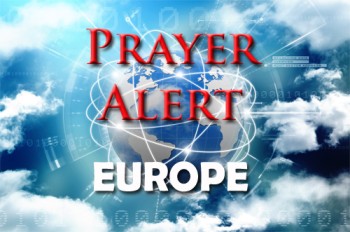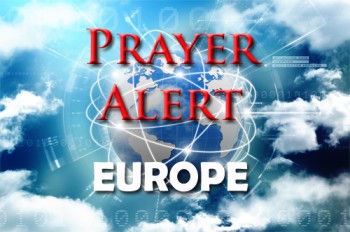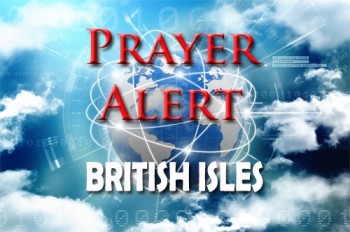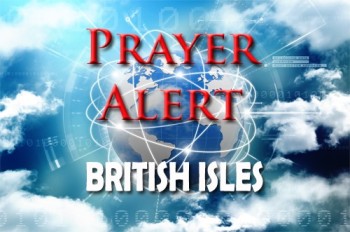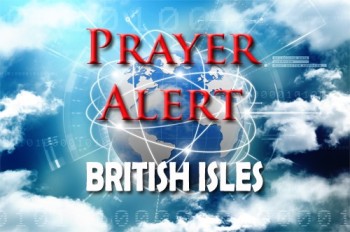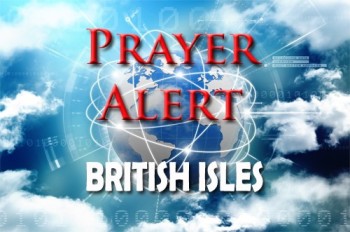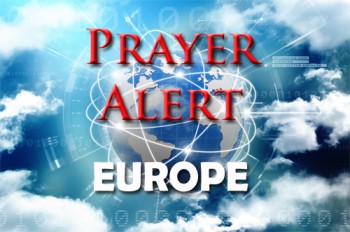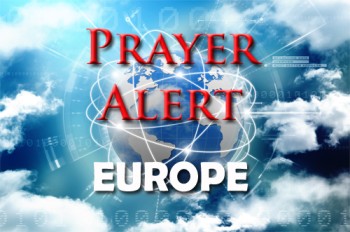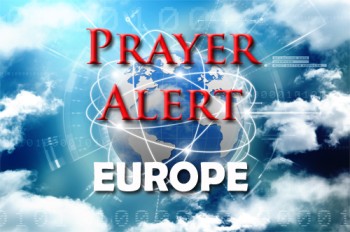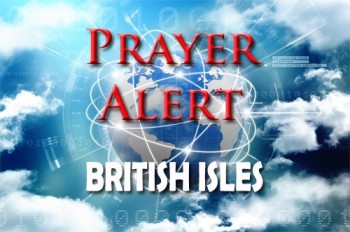Displaying items by tag: Ireland
Dublin: Three gardaí injured and 23 people arrested in second night of Citywest public disorder
Serious unrest broke out for a second consecutive night near the Citywest Hotel in Dublin, leaving three gardaí hospitalised and 23 people arrested. Around 500 people, mostly young men and teenagers, were involved in violent disturbances outside the hotel, which currently houses asylum seekers. Projectiles including bottles, bricks, and flares were thrown at officers, with one garda struck on the head. Over 300 police were deployed, supported by mounted, dog, and air units, though water cannon use was not required. The violence followed an alleged sexual assault on a 10-year-old girl earlier in the week. Justice Minister Jim O’Callaghan condemned the “thuggish violence” and promised those responsible would be “dealt with relentlessly.” Garda Commissioner Justin Kelly warned of a “robust response” to any further disorder, stressing that the gatherings were not peaceful protests. Taoiseach Micheál Martin praised officers for their bravery, describing the attacks as “vile abuse” against those protecting the community. A senior investigating officer has been appointed to lead inquiries. See
Ireland: turmoil as motion of no confidence in Speaker is tabled
Ireland’s political landscape is bracing for a showdown over Ceann Comhairle (Speaker) Verona Murphy, whose role is under fire amid a prolonged row over speaking rights in the Dáil. Since January, tensions have mounted, and now five main opposition parties have united to table a no-confidence motion, claiming bias and procedural failings. Murphy, a former haulier, responded defiantly, rejecting accusations of collusion and affirming her commitment to impartiality and parliamentary procedure. The government, led by Taoiseach Micheál Martin, is standing firmly behind her. Martin criticised the opposition - particularly Sinn Féin - for disruptive conduct and accused them of undermining democratic norms. Murphy is expected to survive the vote, but the battle has exposed deep divides, threatening to paralyse parliamentary function and leaving her position weakened, even if technically secure. Both sides are now entrenched, and further political drama appears inevitable in the days ahead.
Taoiseach praises UK-Irish 'reset' ahead of joint summit
Irish Taoiseach Micheál Martin met Keir Starmer in Liverpool ahead of a historic UK-Irish summit. The event brings together cabinet members from both governments to strengthen ties in trade, energy, and security. Discussions will focus on economic growth, investment, and cooperation in renewable energy, technology, AI, and security. A new data-sharing agreement will be announced to boost offshore energy production. Additionally, Ireland will unveil £185.5 million in investments in the UK, expected to create over 2,500 jobs. The summit is taking place amid heightened security concerns in Europe. Martin praised Starmer’s leadership, emphasising the importance of peace and international cooperation. Starmer expressed his commitment to deepening UK-Irish relations, stating that previous ties had not reached their full potential. This meeting marks a new era of collaboration, reinforcing economic and diplomatic ties between the two nations. The summit concludes before Martin attends a European Council meeting in Brussels.
Irish elections: what happens next?
Ireland’s general election has set the stage for coalition negotiations to form the next government. Fianna Fáil emerged as the largest party with 48 seats, followed by Sinn Féin with 39 and Fine Gael with 38. With 88 seats needed for a majority, Fianna Fáil and Fine Gael are expected to renew their coalition, perhaps with support from independents or smaller parties. Micheál Martin, leader of Fianna Fáil, is poised to return as Taoiseach under the coalition's rotation agreement. Fine Gael, led by Simon Harris, will likely alternate leadership roles during the government’s five-year term. Despite Sinn Féin’s gains, the other parties have ruled out collaboration with them. Negotiations will center on policies like enterprise, EU relations, and home ownership. Meetings and talks are expected to last for weeks, with the Dáil returning on 18 December. Ministers will remain in caretaker roles until a coalition agreement is finalised, likely in early 2025.
Ireland: general election confirmed for 29 November
Taoiseach Simon Harris has officially confirmed that Ireland will hold a general election on Friday 29 November, ending months of speculation. Following a European Council meeting in Budapest, Harris plans to return to Dublin to initiate the three-week campaign, expected to focus on critical issues such as housing, healthcare, the cost of living, immigration, and climate. The election announcement follows pressure on Harris from within his own party, Fine Gael, particularly after his personal approval rating surged to 55% in September. It comes on the heels of this summer’s local and European elections, where Sinn Féin underperformed, prompting the party to adjust its strategy and field around 70 candidates. The Taoiseach’s decision for an early election was also influenced by support from coalition leaders.
Dublin: thousands join 'historic' March for Jesus
On 25 October, 12,000 participants joined Dublin’s 'March for Jesus,' a faith-centred event hailed as historic for the city. The march drew Christians across denominations for a unified display of worship and community. Holding signs proclaiming 'Jesus is our King’, participants sought to bring light to the nation. One pastor commented that the march reflected a societal hunger for God beyond 'superficial' ideologies, calling it a sign of spiritual revival. Catholic bishop Alphonsus Cullinan also endorsed it, saying that it symbolised the light of Christ amidst divisive policies. Many saw the event as a healing moment, bridging historical divides between Northern Ireland and the Republic, as well as between Ireland and Great Britain. The march echoed a global movement that began in London in 1987, highlighting shared faith and hope for spiritual awakening.
Three European countries recognise Palestine
The leaders of Norway, Ireland, and Spain have announced that their countries will recognise Palestine as a state on 28 May to promote peace in the Middle East, Norway’s prime minister Jonas Gahr Store said that there can be no peace in the region without recognition. Ireland’s prime minister Simon Harris and Spain’s prime minister Pedro Sanchez made similar announcements, with Sanchez condemning Israeli policies in Gaza. Harris expressed confidence that more countries would follow suit, and stressed Ireland's support for Israel's secure existence. Harris said that Ireland was unequivocal in recognising Israel’s right to exist securely and in peace with its neighbours, adding: ‘Let me also be clear, Hamas is not the Palestinian people. A two-state solution is the only way out of the generational cycles of violence, retaliation, and resentment.’ Israel’s immediate response was to recall its envoys from the three countries.
Christians attacked for declaring truth
There are currently three European cases where Christians are under attack for speaking out biblical truth concerning gender and same-sex marriage issues. Pastor Akil Pano is accused of hate speech in Albania after defending the words ‘mother’ and ‘father’ and rejecting ‘parent 1’ and ‘parent 2’. In Malta, Matthew Grech has been accused of promoting ‘gay conversion therapy’, and in Ireland teacher Enoch Burke has been removed from his job after refusing to call a transitioning pupil by a new name and ‘gender neutral’ pronouns. Also, in Finland the case of Päivi Räsänen continues; after being acquitted for expressing her views based on the Bible about sexuality and marriage, she is again having to defend her views at the Court of Appeal.
Ireland: cocaine and guns
On 12 July the Gardaí seized €1.1m worth of cocaine and arrested three men at Dublin Airport with support from German and South American police and revenue officers. Investigations are still ongoing. The previous day, an Uzi machine gun, silencer and two magazines of ammunition were found in Dublin, the second such discovery since March. Before 2012 the guns were issued to the Gardai. The weapons will be analysed to establish if they were used in any recent attacks. No arrests have been made and the investigation is continuing.
Brexit: Northern Ireland checks on British goods
The UK wants to change the Brexit process to allow goods to circulate more freely between Great Britain and Northern Ireland, as current rules impose too many barriers to the sale of products. The EU have set out proposals that involve reduced checks on goods and medicines. The January post-Brexit arrangement, the Northern Ireland Protocol, was introduced to help prevent border checks between Northern Ireland and the Republic of Ireland. Both sides agree in differing degrees that the protocol poses many difficulties. EU and UK talks to reach a better arrangement are likely to go on for several weeks.
